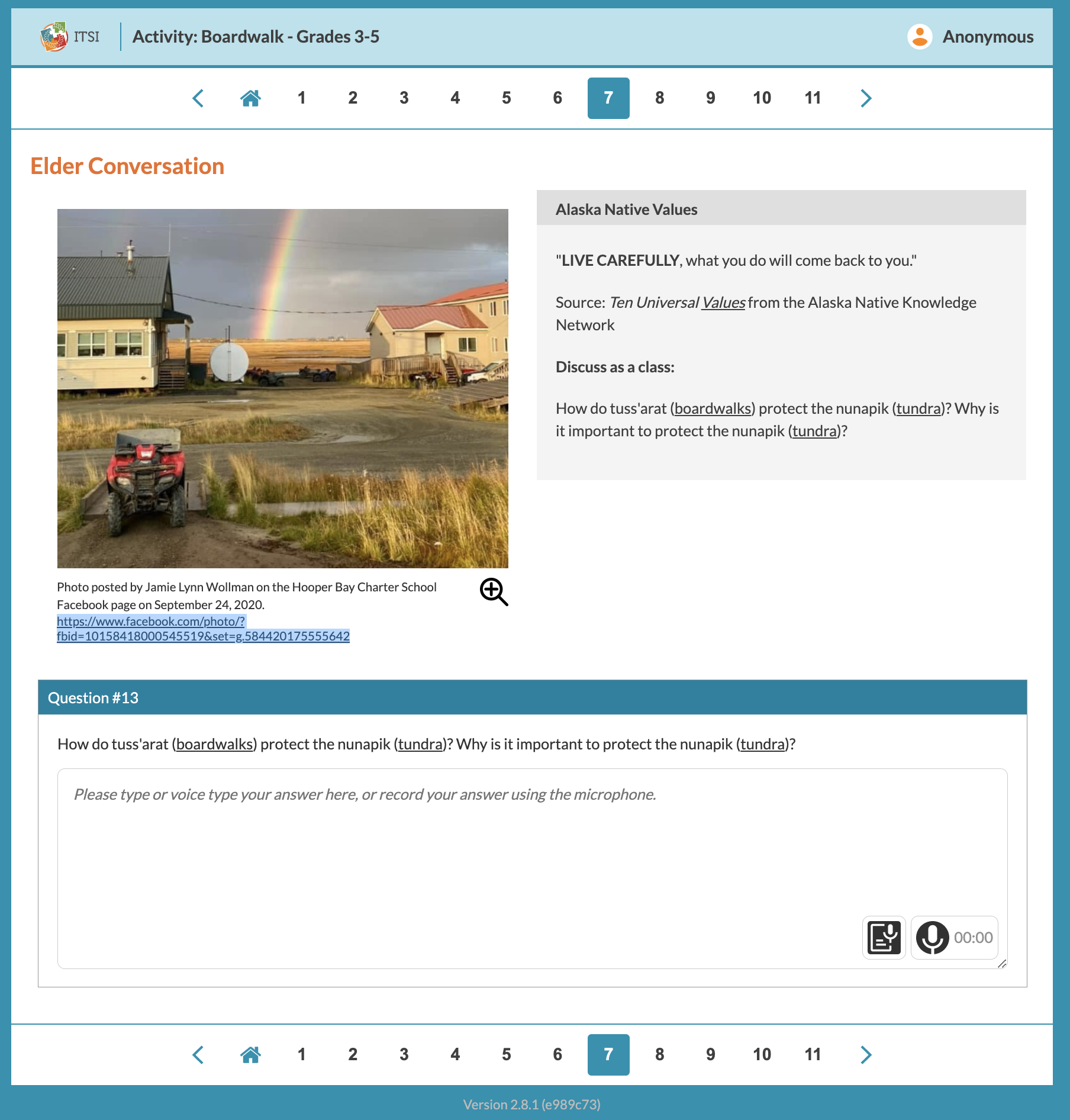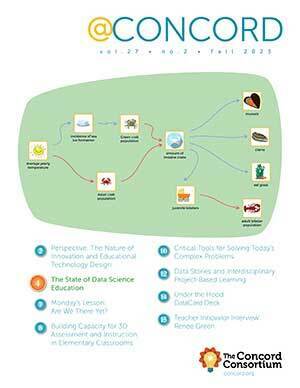Teacher Innovator Interview: Renee Green
As a Yup’ik Native, Renee Green’s goal throughout college was to return to her community and work for and with the people in Hooper Bay. A graduate of the University of Alaska Fairbanks, she has been teaching first through eighth grades in the Lower Yukon School District for 20 years. Since 2019, she has been an elementary and middle school teacher at the Hooper Bay Charter School, the first charter school fully initiated and developed by an Alaska Native tribe.
Hooper Bay Charter School is pioneering the Innovative Technology in Science Inquiry for Yup’ik Students project, funded by the U.S. Department of Education to adapt Concord Consortium’s STEM resources by including local phenomena and Universal Design for Learning (UDL) features. The goal is to create dual-language, place-based STEM curricula that both support the needs of English language learners and provide a means for students to learn in their Yugtun Alaska Native language.
The innovative curriculum units called TREKS extend the traditional 5E learning approach to include two additional E’s—Environment and Elder Conversations—which are critical parts of Indigenous ways of knowing. The TREKS instructional model is thematic and based on local science phenomena. In a word, Renee describes them as holistic. “As a Yup’ik person,” she says, “we tend to see things holistically. Everything is related.”
When the school develops TREKS, they invite the community and Elders in for storytelling. “We want them to be as broad as possible, which can give us more ideas where we can go with the science, math, and reading.” Renee notes, “I really enjoy the TREKS because the kids are sticking to one subject but at the same time they’re branching out to different subject areas.” TREKS include English Language Arts, science, math, and more, but in her class, the subjects flow into each other. “Some days go by quickly because we’re connecting information. Kids aren’t going from one subject to another and another.”

For Renee and her colleagues, it’s all about place. While TREKS focus on Alaska, they also “go outward” as students learn about other parts of the world. However, the most important thing is that students “learn about who they are in their community.”
During one TREK, students and teachers gather different species of plants, then sort them, categorizing medicinal plants and how they’re used in the community as well as poisonous plants. In another, students test the local water, including ponds where the kids swim and those where villagers get their drinking water. According to Renee, students feel empowered because they’re the ones collecting and sharing the information on whether or not the water is safe. Renee also notes that her students, like children everywhere, enjoy being outdoors. “It’s good for them emotionally and mentally.”
In addition to outdoor activities, students use Concord Consortium’s online activities, which include interactive simulations, sensors, embedded questions, videos with Elders, a glossary in both English and Yugtun, and both speech-to-text and text-to-speech capabilities (Figure 1). Each TREK includes a career connection and concludes with a presentation about important community issues such as erosion and conservation where students showcase for parents, Elders, and others what they have learned.
While Renee typically teaches fourth and fifth graders, teachers rotate among grades. When she recently met with a group of eighth graders who have been doing TREKS for the past three years, she beamed with pride. She described telling them, “You really know how to be involved in your learning and how to extend the lessons. I can see that you’re learning and taking responsibility for your learning.” Renee is also proud of her role at Hooper Bay Charter School. “I’m familiar with this area, know subsistence activities, know Yup’ik sayings and the wisdom I’ve heard.” She is now passing on that wisdom.
This material is based upon work supported by the U.S. Department of Education (S356A210002). Any opinions, findings, and conclusions or recommendations expressed in this material are those of the author(s) and do not necessarily reflect the views of the U.S. Department of Education.

